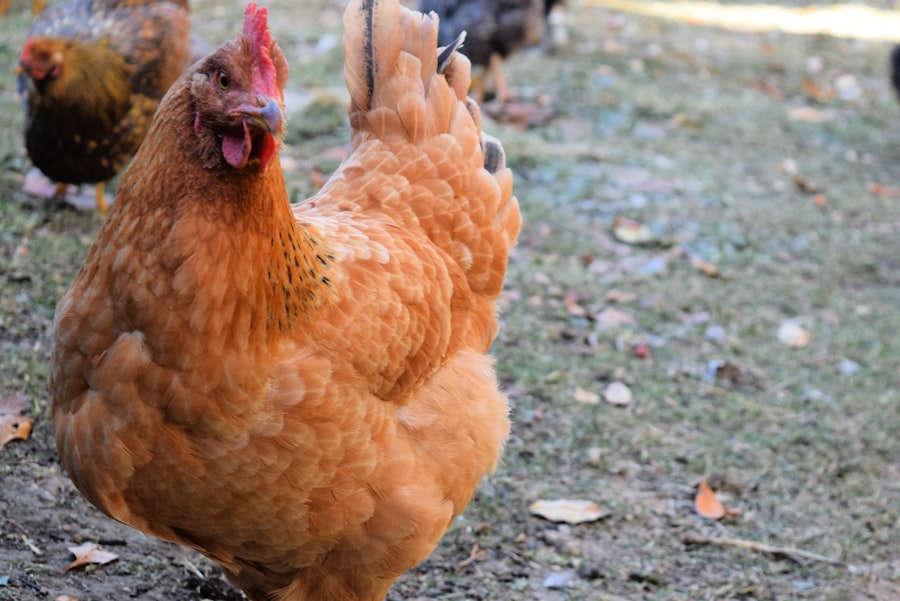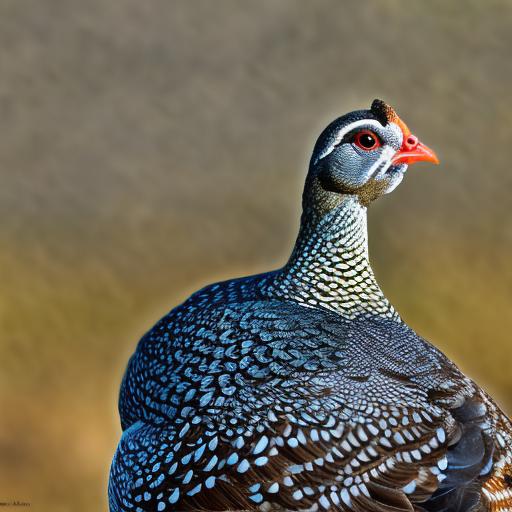Guinea fowl and chickens are both popular poultry choices for backyard farmers and homesteaders. Guinea fowl, also known as guineas, are native to Africa and are known for their distinctive appearance with spotted feathers and a helmet-like crest on their heads. They are highly valued for their pest control abilities, as they are excellent at foraging for insects and ticks. Chickens, on the other hand, are domesticated birds that come in a wide variety of breeds, each with its own unique characteristics and egg-laying abilities. They are known for their docile nature and are often kept for their eggs and meat.
Guinea fowl and chickens have some similarities in terms of their care requirements, such as the need for shelter, food, and water. However, there are also some key differences between the two species, including their behavior, habitat needs, and potential benefits and challenges of keeping them together. Understanding these differences is essential for anyone considering keeping guinea fowl with chickens.
Key Takeaways
- Guinea fowl and chickens have different behaviors and habitat needs
- Guinea fowl can provide pest control and alert systems when kept with chickens
- Challenges of keeping guinea fowl with chickens include aggression and noise
- Provide separate feeding and watering stations to prevent competition
- Monitor the health of both guinea fowl and chickens regularly
Differences in Behavior and Habitat Needs
Guinea fowl and chickens have different behavior patterns and habitat needs that should be taken into consideration when keeping them together. Guinea fowl are known for being more independent and wild in nature compared to chickens. They are highly active birds that prefer to roam and forage over a large area, making them less suited to confinement than chickens. Guinea fowl are also known for being more vocal and can be quite noisy, especially when they feel threatened or are alerting the flock to potential danger.
Chickens, on the other hand, are more docile and social birds that tend to stay closer to their coop and run. They are also less vocal than guinea fowl, although some breeds can be quite chatty. Chickens are generally more adaptable to confinement and can be kept in smaller spaces than guinea fowl. Additionally, chickens have a strong instinct to roost at night, while guinea fowl prefer to sleep on the ground. These differences in behavior and habitat needs can impact how guinea fowl and chickens interact when kept together.
Potential Benefits of Keeping Guinea Fowl with Chickens
There are several potential benefits to keeping guinea fowl with chickens. One of the main advantages is pest control. Guinea fowl are excellent foragers and have a voracious appetite for insects, ticks, and other pests. By keeping guinea fowl with chickens, you can help reduce the pest population in your yard or pasture, which can be beneficial for both the birds and your plants. Additionally, guinea fowl are known for being excellent watchdogs, as they are highly alert and will sound the alarm if they sense danger. This can help protect your chickens from predators such as foxes, raccoons, or hawks.
Another potential benefit of keeping guinea fowl with chickens is their ability to integrate into a mixed flock. While guinea fowl may have different behavior patterns than chickens, they can still coexist peacefully with proper introductions and management. Guinea fowl can also add diversity to your flock, both in terms of appearance and behavior. Their unique spotted feathers and helmet-like crest can add visual interest to your flock, while their active foraging behavior can provide entertainment for both you and your other birds.
Potential Challenges of Keeping Guinea Fowl with Chickens
While there are potential benefits to keeping guinea fowl with chickens, there are also some challenges to consider. One of the main challenges is the potential for aggression between guinea fowl and chickens. Guinea fowl can be territorial and may be aggressive towards other birds, especially during the breeding season. This can lead to conflicts with your chickens, particularly if they are confined in a small space together. Additionally, guinea fowl can be quite vocal, which may be disruptive to you or your neighbors if you live in a residential area.
Another potential challenge of keeping guinea fowl with chickens is their different habitat needs. Guinea fowl prefer to roam over a large area and may not be content with the confines of a chicken coop and run. This can lead to stress and behavioral issues for the guinea fowl if they are not given enough space to roam and forage. Additionally, guinea fowl have different roosting habits than chickens, which can make it challenging to provide suitable sleeping arrangements for both species.
Tips for Successfully Keeping Guinea Fowl with Chickens
Successfully keeping guinea fowl with chickens requires careful planning and management. Here are some tips to help you create a harmonious mixed flock:
1. Introduce them gradually: When introducing guinea fowl to an existing chicken flock, it’s important to do so gradually to minimize stress and aggression. Start by housing them in separate but adjacent enclosures so they can get used to each other’s presence before allowing them to interact directly.
2. Provide ample space: Guinea fowl require more space to roam and forage than chickens, so make sure they have access to a large outdoor area. This can help reduce stress and aggression between the two species.
3. Provide multiple roosting options: Since guinea fowl prefer to sleep on the ground while chickens roost, provide multiple roosting options in the coop to accommodate both species’ preferences.
4. Monitor for aggression: Keep an eye on the interactions between guinea fowl and chickens, especially during the breeding season when aggression may be heightened. Separate any birds that are showing signs of aggression to prevent injuries.
5. Consider free-ranging: Allowing your mixed flock to free-range in a larger area can help reduce conflicts and provide ample space for both guinea fowl and chickens to exhibit their natural behaviors.
By following these tips, you can increase the likelihood of successfully keeping guinea fowl with chickens and enjoy the benefits of a diverse and pest-resistant flock.
Health Considerations for Mixed Flocks

When keeping guinea fowl with chickens, it’s important to consider the health implications for both species. Guinea fowl and chickens can share many common diseases and parasites, so it’s essential to maintain good biosecurity practices to prevent the spread of illness within the flock. This includes regular cleaning and disinfection of coops and equipment, as well as monitoring the health of individual birds for signs of illness.
Additionally, it’s important to provide a balanced diet for both guinea fowl and chickens to ensure they receive the nutrients they need to stay healthy. While guinea fowl are excellent foragers, they may still require supplemental feed to meet their nutritional needs, especially during times of high energy expenditure such as breeding or molting. Providing access to grit is also important for both species to aid in digestion.
Finally, it’s essential to consider the potential impact of any medications or treatments on both guinea fowl and chickens when managing their health. Some medications that are safe for chickens may be toxic to guinea fowl, so always consult with a veterinarian experienced in poultry care before administering any treatments.
By prioritizing good biosecurity practices, providing a balanced diet, and seeking veterinary guidance when needed, you can help ensure the health and well-being of your mixed flock.
Is Keeping Guinea Fowl with Chickens Right for You?
Keeping guinea fowl with chickens can offer several benefits, including pest control, diversity in your flock, and added protection from predators. However, it also comes with potential challenges such as aggression between species and differing habitat needs. By carefully considering these factors and implementing management strategies such as gradual introductions, ample space, and monitoring for aggression, you can increase the likelihood of successfully keeping guinea fowl with chickens.
It’s important to remember that every flock is unique, and what works well for one person’s situation may not work as effectively for another. Before deciding whether keeping guinea fowl with chickens is right for you, take the time to assess your own resources, space availability, and management capabilities. If you have the space and resources to accommodate the differing needs of both species and are willing to invest the time and effort into proper management, keeping guinea fowl with chickens could be a rewarding experience that adds diversity and functionality to your poultry flock. However, if you have limited space or are unable to provide the necessary accommodations for both species, it may be best to keep them separate.
Ultimately, successful integration of guinea fowl with chickens requires careful planning, ongoing management, and a willingness to adapt as needed based on the unique dynamics of your mixed flock. With thoughtful consideration and proactive management, you can create a harmonious environment where guinea fowl and chickens coexist peacefully while reaping the benefits each species has to offer.
If you’re considering keeping guinea fowl with chickens, it’s important to understand the dynamics between these two types of poultry. According to a recent article on PoultryWizard, understanding the breeding behavior of guinea fowl can provide valuable insights into their compatibility with chickens. The article “When Do Guinea Fowl Lay Eggs” explores the breeding habits of guinea fowl and sheds light on how their egg-laying patterns may impact their cohabitation with chickens. For more information on this topic, you can check out the article here.
FAQs
What are the benefits of keeping guinea fowl with chickens?
Guinea fowl can help control pests such as ticks, flies, and other insects in the area where they are kept. They are also known to be good alarm animals, alerting the flock to potential danger.
Can guinea fowl and chickens be kept together?
Yes, guinea fowl and chickens can be kept together. However, it is important to introduce them to each other gradually and provide enough space for both species to coexist peacefully.
What are the potential challenges of keeping guinea fowl with chickens?
Guinea fowl are known to be more aggressive and can sometimes bully chickens, especially during feeding time. They also have different housing and roosting preferences, so it’s important to provide separate areas for both species if possible.
Do guinea fowl and chickens require the same type of feed?
Guinea fowl and chickens have different nutritional requirements, so it’s important to provide them with separate feeds. Guinea fowl require a higher protein content in their diet compared to chickens.
Are there any health concerns when keeping guinea fowl with chickens?
Guinea fowl and chickens can potentially transmit diseases to each other, so it’s important to monitor their health closely and practice good biosecurity measures to prevent the spread of diseases. Regular veterinary check-ups are also recommended.
Meet Walter, the feathered-friend fanatic of Florida! Nestled in the sunshine state, Walter struts through life with his feathered companions, clucking his way to happiness. With a coop that’s fancier than a five-star hotel, he’s the Don Juan of the chicken world. When he’s not teaching his hens to do the cha-cha, you’ll find him in a heated debate with his prized rooster, Sir Clucks-a-Lot. Walter’s poultry passion is no yolk; he’s the sunny-side-up guy you never knew you needed in your flock of friends!







